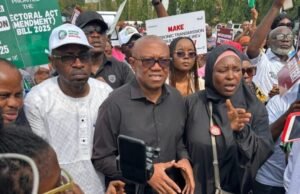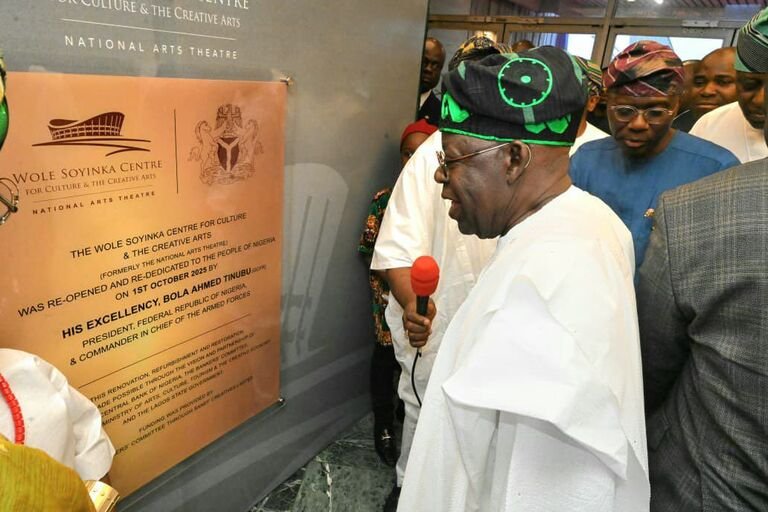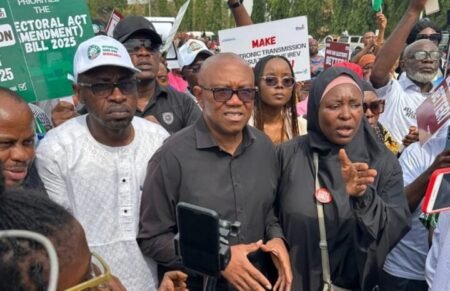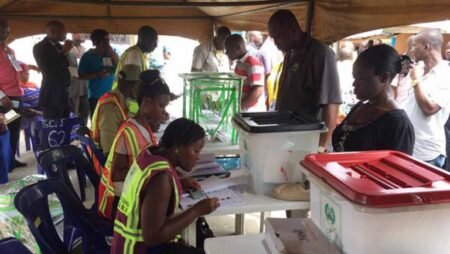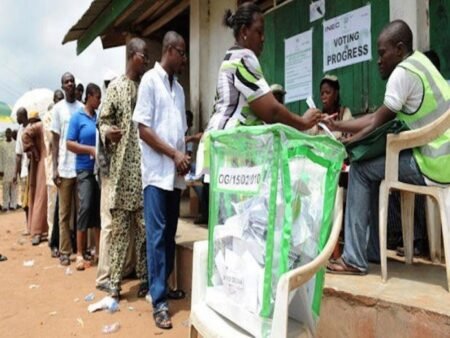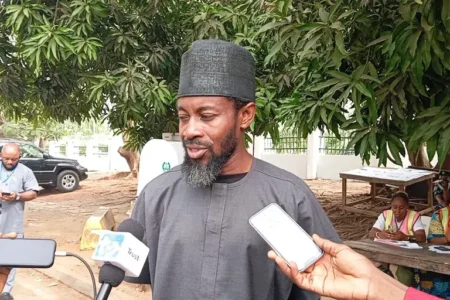President Bola Tinubu has renamed the renovated National Theatre in Lagos after Nobel Laureate Professor Wole Soyinka, calling it a fitting tribute to Nigeria’s most celebrated writer and activist.
The newly christened Wole Soyinka Centre for Culture and the Creative Arts is being hailed as a rebirth of the nation’s creative hub, following a N68 billion renovation spearheaded by the Central Bank of Nigeria (CBN) and the Bankers’ Committee.
Tinubu described Soyinka as “one of the world’s greatest assets,” praising his literary genius, activism, and role in nation-building. He urged Nigerians to believe in the country’s potential:
“This is a country of very proud people. We know what we are. Lift Nigeria, believe in Nigeria. Put Nigeria first.”
The President also directed CBN Governor Yemi Cardoso to establish an endowment fund to maintain the theatre and generate jobs while preserving Soyinka’s legacy.
Governor Babajide Sanwo-Olu of Lagos noted that the state contributed land and transport infrastructure to support the revival, stressing that the theatre represents “the heartbeat of our nation’s creative soul.”
Minister of Arts, Culture, Tourism and Creative Economy, Hannatu Musawa, hailed the event as a turning point for Nigeria’s creative sector, crediting Tinubu for establishing a dedicated ministry for the industry.
Wole Soyinka himself admitted he had doubts the dilapidated theatre could be restored but expressed gratitude for the honour—despite his well-known reservations about monuments being named after living figures.
The renovated centre now boasts world-class halls, galleries, cinemas, and upgraded infrastructure, positioning Nigeria’s creative industry for global recognition.
The ceremony drew dignitaries including Senate President Godswill Akpabio, Speaker Tajudeen Abbas, Lagos Deputy Governor Obafemi Hamzat, and First Lady Oluremi Tinubu. Guests were treated to cultural performances by the National Troupe of Nigeria and other acclaimed ensembles.
The rebirth of the National Theatre signals not just a revival of infrastructure, but a renewed commitment to Nigeria’s cultural identity, creativity, and global influence.

